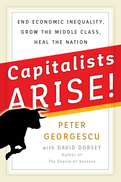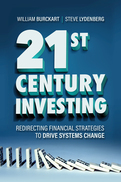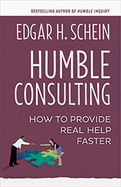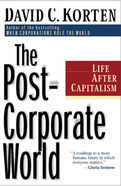Now updated with 20% new content, including strategies for remote and hybrid workplaces.The bestselling guide on empowering introverted leaders to thrive in an extroverted world.
Now updated with 20% new content, including strategies for remote and hybrid workplaces.
In this expanded third edition of the bestselling The Introverted Leader, Jennifer Kahnweiler equips introverted leaders with essential tools for success in an extrovert-centric business world. With over 120,000 copies sold across multiple languages, this timely update addresses the evolving needs of introverted leaders, including in navigating remote and hybrid work environments such as:
• Navigating the challenges of Zoom calls
• Getting noticed when working remotely
• Applying innovative meeting techniques for engaging introverts
Kahnweiler's proven four-step strategy based on lessons from thousands of introverted leaders-Prepare, Presence, Push, and Practice-provides a concrete framework for introverts to leverage their natural strengths and overcome challenges in key areas such as public speaking, project management, and networking. The book includes:
• Practical applications of the 4 Ps approach in six crucial workplace scenarios
• A new chapter on leading effectively in remote and hybrid spaces
• The “Quiet Wrap-Up Journal” An action-oriented study guide for ongoing development
• Customized hiring and coaching strategies for introverts
Drawing from extensive research and over 100 interviews, Kahnweiler demonstrates how introversion can be a leadership asset, particularly in listening and written communication. This essential guide empowers introverted leaders to embrace their authentic selves while advancing their careers and making meaningful contributions to their organizations.
2017
Marshaling deeply sobering statistics, Georgescu depicts the stark reality of America today: a nation with greater wealth inequality and lower social mobility than just about any other country in the developed world. But the problem isn't that free-market capitalism no longer works—it's that it's been hijacked by shareholder primacy. Where once our business leaders looked to the needs and interests of a variety of stakeholders—employees, community members, the business itself—now they're myopically focused on maximizing their shareholders' quarterly returns.
Capitalists, Arise! shows how the short-term thinking spawned by shareholder primacy lies at the root of our current economic malaise and social breakdown. But Georgescu offers concrete actions that capitalists themselves can take to create a better future. The irony is that if businesses do this, shareholders will do even better. In the long run, businesses can thrive only when society is healthy and strong. This book is a manifesto calling on capitalists to heal the nation that has given them so much.
—Susan Cain, New York Times bestselling author of Quiet and Quiet Power and cofounder of Quiet Revolution
How does a self-described "extreme introvert" thrive in a world where extroverts are rewarded and social institutions are set up in their favor? Using her extraordinary personal story as a "case study of one," author Jill Chang shows that introverts hold tremendous untapped potential for success. Chang describes how she succeeded internationally in fields that are filled with extroverts, including as an agent for Major League Baseball players, a manager of a team across more than twenty countries, and a leading figure in international philanthropy. Instead of changing herself to fit an extroverted mold, she learned to embrace her introversion, turning it from a disadvantage to the reason she was able to accomplish great goals and excel in tasks that her extroverted peers missed. She offers advice on the best jobs for introverts, overcoming the additional difficulties language and cultural barriers can present, thriving at social events and business presentations, leveraging the special leadership traits of introverts, and much more. Part memoir and part career guide, this book gives introverts the tools to understand how they can form relationships, advance in the career path, excel in cross-cultural workplaces, and navigate extroverted settings without compromising comfort or personality.
It's time for a new way to think about investing, one that can contend with the complex challenges we face in the 21st century.
Investment today has evolved from the basic, conventional approach of the 1950s. Investors have since recognized the importance of sustainable investment and have begun considering environmental and social factors. Yet the complexity of the times forces us to recognize and transition to a third stage of investment practice: system-level investing.
In this paradigm-shifting book, William Burckart and Steve Lydenberg show how system-level investors support and enhance the health and stability of the social, financial, and environmental systems on which they depend for long-term returns. They preserve and strengthen these fundamental systems while still generating competitive or otherwise acceptable performance.
This book is for those investors who believe in that transition. They may be institutions, large or small, concerned about the long-term stability of the environment and society. They may be individual investors who want their children and grandchildren to inherit a just and sustainable world. Whoever they may be, Burckart and Lydenberg show them the what, why, and how of system-level investment in this book: what it means to manage system-level risks and rewards, why it is imperative to do so now, and how to integrate this new way of thinking into their current practice.
2016
Organizations face challenges today that are too messy and complicated for consultants to simply play doctor: run a few tests, offer a neat diagnosis of the “problem,” and recommend a solution. Edgar Schein argues that consultants have to jettison the old idea of professional distance and work with their clients in a more personal way, emphasizing authentic openness, curiosity, and humility. Schein draws deeply on his own decades of experience, offering over two dozen case studies that illuminate each stage of this humble consulting process. Just as he did with Process Consultation nearly fifty years ago, Schein has once again revolutionized the field, enabling consultants to be more genuinely helpful and vastly more effective.
Capitalism is a pathology that commonly afflicts market economies in the absence of vigilant public oversight. Since the economy internal to a corporation is a planned economy, the current consolidation of economic control under a handful of global corporations is a victory for central planning-not the market economy. The alternative to the new global capitalism is a global system of thriving, healthy market economies that function as extensions of healthy local ecosystems to meet the livelihood needs of people and communities.
Radical as such proposals may seem, they actually reflect processes that are steadily gaining momentum around the world. The Post-Corporate World provides a vision of what's needed and what's possible, as well as a detailed agenda for change. Korten shows that to have a just, sustainable and compassionate society, concentrated absentee ownership and footloose speculative capital as embodied in the global, for-profit public corporation must be eliminated in favor of enterprises based on patient, rooted, stakeholder ownership limited to those who have a stake in the firm as a worker, supplier, customer, or member of the community in which it is located.
Korten outlines numerous specific actions to free the creative powers of individuals and societies through the realization of real democracy, the local rooting of capital through stakeholder ownership, and a restructuring of the rules of commerce to create "mindful market" economies that combine market principles with a culture that nurtures social bonding and responsibility.
Like Korten's previous bestseller, When Corporations Rule the World, this provocative book is sure to stimulate national dialogue and debate and inspire a bevy of grassroots discussions and initiatives. The Post-Corporate World presents readers with a profound challenge and an empowering sense of hope.
• From the bestselling author of When Corporations Rule the World
• An extensively researched, powerfully argued, eye-opening critique of how today's corporate captialism is destroying the things of real value in the world-like cancer destroys life
• Portrays a hopeful future-alternatives to a corporate-dominated and money-ruled world-in showing how to resore health to markets, democracy, and every day life
• Offers practical suggestions for individuals who want to contribute to the process of change
• Co-published with Kumarian Press
There is a deep chasm between the promises of the new global capitalism and the reality of social breakdown, spiritual emptiness, and environmental destruction it is leaving in its wake. In this important book, David Korten makes a compelling and well-documented case that capitalism is actually delivering a fatal blow not only to life, but also to democracy and the market. Among his startling ideas:
Capitalism is a pathology that commonly afflicts market economies in the absence of vigilant public oversight. Since the economy internal to a corporation is a planned economy, the current consolidation of economic control under a handful of global corporations is a victory for central planning-not the market economy. The alternative to the new global capitalism is a global system of thriving, healthy market economies that function as extensions of healthy local ecosystems to meet the livelihood needs of people and communities.
Radical as such proposals may seem, they actually reflect processes that are steadily gaining momentum around the world. The Post-Corporate World provides a vision of what's needed and what's possible, as well as a detailed agenda for change. Korten shows that to have a just, sustainable and compassionate society, concentrated absentee ownership and footloose speculative capital as embodied in the global, for-profit public corporation must be eliminated in favor of enterprises based on patient, rooted, stakeholder ownership limited to those who have a stake in the firm as a worker, supplier, customer, or member of the community in which it is located.
Korten outlines numerous specific actions to free the creative powers of individuals and societies through the realization of real democracy, the local rooting of capital through stakeholder ownership, and a restructuring of the rules of commerce to create "mindful market" economies that combine market principles with a culture that nurtures social bonding and responsibility.
Like Korten's previous bestseller, When Corporations Rule the World, this provocative book is sure to stimulate national dialogue and debate and inspire a bevy of grassroots discussions and initiatives. The Post-Corporate World presents readers with a profound challenge and an empowering sense of hope.



















